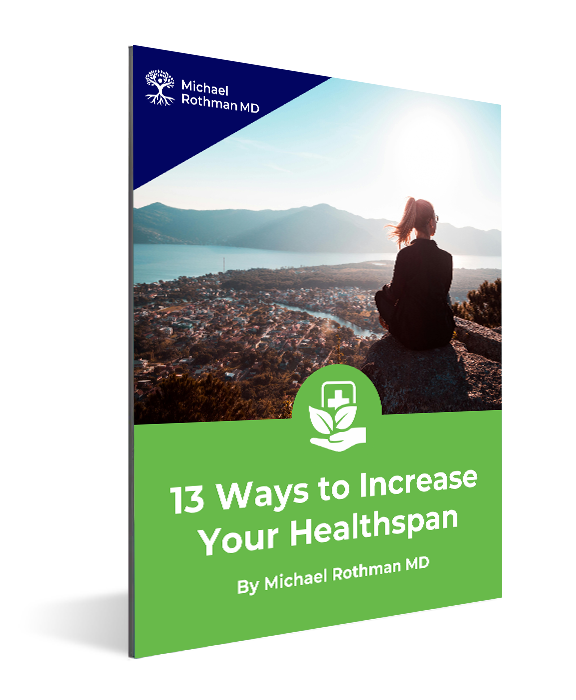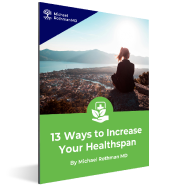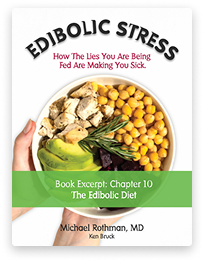Intermittent fasting has quickly become a health trend with celebrities and “health” professionals touting its health and weight loss benefits. But this eating pattern is not simply skipping a meal. For this method to be the most effective, you must be vigilant in WHEN and most importantly WHAT you eat. You cannot expect to lose weight by binge eating fast foods during an 8-hour window. With all the misinformation online, I’ve decided to answer the most popular questions about Intermittent Fasting.
What is Intermittent Fasting?
Intermittent fasting is way of timing your meals to allow you to be in a non-fed state for relatively long periods of time.
What is a “non-fed” state?
A non-fed state also known as the “post-absorptive state” is a physiologic state where your body has consumed easily accessible energy sources like sugar and glycogen. When you have depleted those stores, your body will start using fat as an energy source. You will need to abstain from eating for at least 8-12 before you actually reach the “non-fed” state
What is the advantage of being in the “non-fed” state?
While in the “non-fed” state, you will burn your own fat for energy; this will help you to reduce your body fat. More importantly, fasting (being in the non-fed state for extended periods of time) will reduce your insulin levels. Chronically elevated insulin levels (resulting from lack of being in the non-fed state) leads to insulin resistance (IR).
Why is Insulin Resistance (IR) so detrimental to health?
Research is demonstrating that insulin resistance (IR) is the root cause of many chronic diseases including heart disease, high blood pressure and type II diabetes. IR also contributes to weight gain, hypothyroidism, cancer, mortality from covid-19 and other chronic inflammatory diseases.
Doesn’t a calorie-restricted diet do the same thing?
No! Calorie restricted diets eventually will fail because your metabolism slows down under conditions of calorie restriction. Intermittent fasting does not restrict caloric intake, instead IF restricts the timing of your meals. IF does not slow your metabolism. Improving your insulin sensitivity will actually increase your metabolism.
How do I start Intermittent Fasting?
- Stop snacking – eat three meals each day – do not eat between meals
- Stop consuming sugar, reduce excess carbohydrate intake
- Do not eat your first food of the day (breakfast) until you are hungry
- Eat your breakfast later and later in the morning as you start to become more fat adapted
- Eat two meals each day
- Eat your first meal later and your last meal earlier to increase the amount of time that you are in the non-fed state
- Eat one meal a day (OMAD)
- Continue to extend your fast to greater than 24 hours
What are some tips for success in Intermittent Fasting?
- Reduce your carbohydrate intake levels – carbohydrates stimulate insulin
- Avoid excess amounts of protein-protein can be turned into carbohydrates, which then increase insulin
- Eat healthy fats – Meat, eggs, cheese, coconuts, chicken, pork ….Avoid polyunsaturated fats (PUFA) – PUFA are found in nuts and seeds, nut butter margarine, commercial mayonnaise and salad dressings (usually in the form of canola oil or soy oil) and many processed foods
- Eat real food- avoid protein powders, power bars, avoid processed foods. Protein powders often contain BCAA (branched-chain amino acids) that can spike your insulin levels
- Drink plenty of water – avoid juice, diet drinks
- Avoid artificial sweeteners- they can spike your insulin levels
- Get enough restorative sleep – poor sleep is very stressful, raising your cortisol levels, leading to high blood sugar, elevated insulin and finally contributing to insulin resistance
- Reduce your stress – any aspect of your life that contributes to excessive stress can raise your cortisol levels, leading to high blood sugar, elevated insulin and finally insulin resistance
- Do short bursts of high-intensity training (HIT). HIT will help to increase your metabolic rate
- Do not try to starve yourself – this is not sustainable and will slow your metabolism
- Do not overeat when breaking your fast – eat slowly in a calm, relaxed atmosphere.
- Be flexible with your eating schedule
- Plan ahead with what you are going to eat to break your fast-Do not just “grab something” because you are tired or hungry or time-pressured
- Work with an experienced professional who understands physiology to personalize your treatment – This is where a Metabolically Directed approach is utilized

Start your journey to true well-being:
Here are 2 sample Intermittent Fasting Schedules and Meal Ideas
Person 1
Wednesday – 17 hour fast
Meal 1: 1:45pm Romaine lettuce boats with rotisserie chicken shredded cheddar cheese and honey mustard
Meal 2: 8pm Chipotle- steak salad with mild salsa, corn, and extra cheese
Thursday – 15:53 hour fast
Meal 1: 11:53am 5 hard boil eggs, 2 cucumbers from the garden dipped in hummus, a wedge of pepper jack cheese
Meal 2: 8pm oriental chicken salad-teriyaki marinated chicken tenderloin, red peppers, edamame, shredded carrot, red cabbage, cilantro, scallions, orange ginger dressing
Friday – 15:45 hour fast
Meal 1: 11:50am 5 hard boil eggs, 2 cucumbers from the garden dipped in hummus, a wedge of pepper jack cheese
Meal 2: 7:45pm oriental chicken salad-teriyaki marinated chicken tenderloin, red peppers, edamame, shredded carrot, red cabbage, cilantro, scallions, orange ginger dressing
Saturday – 16:15 hour fast
Meal 1: 12:00 pm 5 Meatballs, fresh mozzarella, and steamed broccoli
Meal 2: 6-8:30pm Birthday party, grazed on cheese, veggies and hummus, dumplings, ribs, piece of pistachio cake with raspberries and marscapone icing
Sunday – 16:30 hour fast
Meal 1: 1:00pm 2 cheeseburgers, bottom bun only lettuce tomato, watermelon
Meal 2: 6:00pm ribeye grilled peppers, eggplant, zucchini, watermelon
Monday – 17:30 hour fast
Meal 1: 12:15pm 3 bean salad, leftover ribeye
Meal 2: 8:00pm chicken cordon bleu roasted green beans
Tuesday – 15:45 hour fast
Meal 1: 11:30am egg salad on rye toast, tomato from the garden with salt and pepper
Meal 2: 8:00pm sausage and peppers
Ready to Take Control of Your Health?
If you’re ready to prioritize your health and are seeking effective, metabolically directed treatments, contact us online or call (732) 268-7663 for a consultation with Dr. Rothman.
Person 2
Sunday – 16:30 hour fast
Meal 1: 12:30pm Sausages and sautéed spinach
Meal 2: 7:30pm uncured hot dogs with cheese and tomato
Monday – 17:00 hour fast
Meal 1: 12:30pm 4 poached eggs, 3 non-cured sausage links
Meal 2: 6:45pm 2 ¼ pound grass-fed burger patties with organic cheese and steamed broccoli
Tuesday – 17:45 hour fast
Meal 1: 12:30pm chicken and grilled vegetables
Meal 2: 7:00pm same meal of chicken and grilled vegetables
Wednesday -17:30 hour fast
Meal 1: 12:30pm meatballs and steamed broccoli
Meal 2: 7:00pm chicken, ribs and broccoli
Thursday – 17:30 hour fast
Meal 1: 11:30AM 3 poached eggs, 3 links of uncured sausage and organic potatoes
Meal 2: 3:00pm pork and potatoes
Meal 3: 8:30pm grass-fed ribeye steak and sautéed string beans
Friday – 17:00 hour fast
Meal 1: 1:00pm 4 slices of organic cheese
Meal 2: 3:00pm pork, rice and string beans
Meal 3: 7:30pm grass-fed steak and sautéed string beans
Saturday – 17:30 hour fast
Meal 1: 1:30pm left-over from dinner grass-fed steak and sautéed string beans
Meal 2: 4:00pm 3 slices of cheese and tomato
Meal 3: 8:45pm grilled chicken kale and potatoes
*This person started to eat 3 meals a day on his Intermittent Fasting Eating Schedule because he wanted to maintain his weight.
The benefits to both your health and weight loss goals, in my opinion, can be met with Intermittent Fasting. I hope you consider eating less frequently and continue to educate yourself about the benefits of intermittent fasting, just as I have been able to do.
Are you interested in intermittent fasting? Come in for a consultation with Dr. Rothman by calling, 732-268-7663 and establish a better nutritional plan guaranteed to help you stabilize your blood sugars, reduce your insulin levels, improve your health, and even help you lose weight













